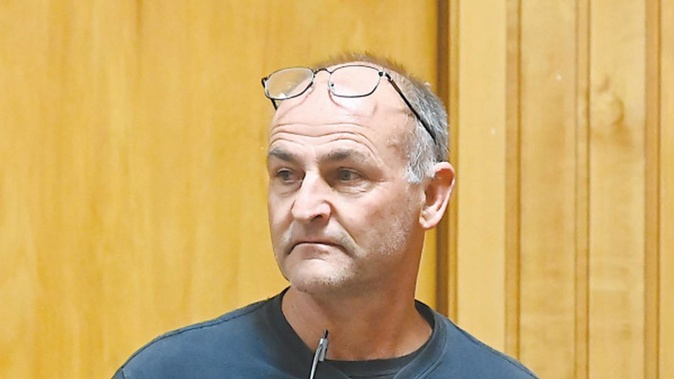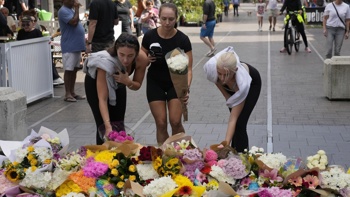
A farmer who fleeced IRD for $17.3 million has pleaded in tears for a Court of Appeal judge not to send him back to prison.
Matawai man John Richard Bracken hobbled on crutches into the High Court at Wellington this morning - where his Court of Appeal hearing was being held - and began his tremulous address to the judge, asking for his convictions to be overturned or his sentence to be changed.
The 56-year-old, who had dislocated his hip the day before, clapped his hand to his mouth and cried as he asked the panel of judges not to send him back to prison, or at least not back to Hawke's Bay Regional Prison.
In his submissions appealing his sentence, he detailed various incidents of abuse from other inmates at the prison and said he barely slept out of fear and anxiety.
Bracken has been in prison for one year out of his eight and a half year sentence, imposed after he was found guilty at judge-alone trial of 39 charges of dishonestly using a document to obtain a financial advantage.
Each of the charges represented a GST period between August 2014 and July 2018, and related to an exporting arm of Bracken Enterprises Limited (BEL) — not his Matawai farming operation, which it was accepted was being run legitimately.
Bracken, who represented himself both at trial and at today's appeal, began the hearing this morning by telling the court he was a man, not a person.
"A person is a fictional being. A person is a false face, a mask," he said.
"We agree that the court has jurisdiction over a person, a citizen, and a New Zealander because the Government created that person, but the Government did not create man, God did.
"I am not a New Zealander, I am a man - just a man."
But Justice Geoffrey Venning said the point Bracken was making had been put before courts in the past without success.
"The laws of New Zealand apply to people within New Zealand," he told Bracken.
"Please don't persist with the current argument, it's just not helping you."
Bracken raised issues with his trial, saying an IRD witness who gave evidence did not know how the system worked, the judge kept interrupting him while he was speaking, and that he was being punished under both the Crimes Act 1961 and the Tax Administration Act 1994, despite section 10 of the Crimes Act stating no one is liable to be punished twice in respect of the same offence.
His appeal against sentence, read out by stand-by counsel Adam Simperingham, contained no mention of legal appeal grounds, but detailed Bracken's experience in prison.
He said he had suffered brain injuries and other traumatic events such as a fall off a truck at the age of four, a bus accident at five, and an eight-metre fall from a roof 10 years ago.
"The brain injury people told me I have a very small toolbox now, not sure what they mean."
He said there was not a day in jail that he was not crying and feeling sick.
After his submissions Justice Venning told the Crown lawyer he did not think the court needed to hear from her.
She said the sentence appeal contained no reference to an error in law, and "in absence of an error the sentence appeal must be dismissed".
The court has reserved its decision.
The offending
Bracken's scam involved him claiming GST refunds by falsely purporting he had exported products received from New Zealand suppliers. It enabled him to claim input tax on product he never received and to evade payment of output tax.
To support those false sales, he regularly conducted circular banking transactions. The transactions involved same-day withdrawals and deposits of large sums of money in the form of either bank cheques or cash, and were always in person and only ever at physical branches of the ANZ — usually Takanini, where he befriended a bank teller — the first of two women he paid to generate false invoices.
The other woman claimed to be his lover and took over creating the invoices during 2016. It was her who called the Serious Fraud Office (SFO) during 2017, when a friend of Bracken's alerted her to the possibility the invoices were illegal.
The invoices were based on copies Bracken obtained through legitimate trading or in the majority of cases, pro forma invoices he received through initial inquiries from suppliers of various export-type products — bottled water, milk, logs, plywood, honey and the like.
At trial, it was accepted Bracken legitimately exported goods to the Pacific — mainly plywood and timber — but it was at nowhere near the level he purported for the purposes of his scam.
During the offence period, Bracken claimed to have entered into transactions totalling about $133m, which enabled the $17.3m refunds.
New Zealand Customs records show goods he actually exported amounted to about $478,000 and even taking account of products he exported as part of shared freight consignments with other companies, it was still a far cry from the level he purported.
Take your Radio, Podcasts and Music with you









